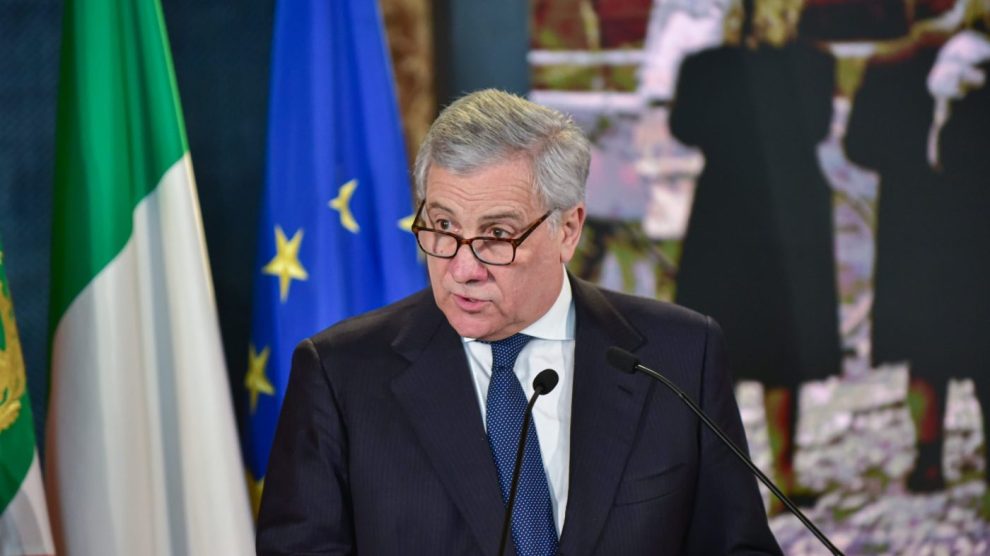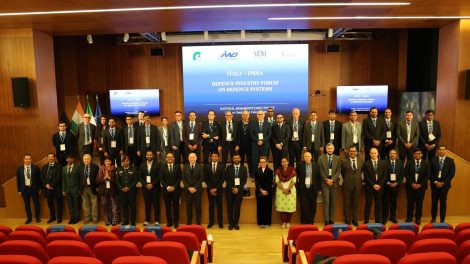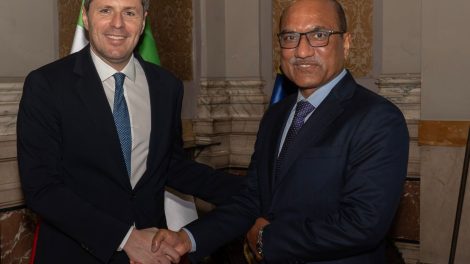NATO’s not entering Ukraine anytime soon. “Right nowm we have to be firm in the defence of international law and determined to give Ukraine all the aid we can. But firmness does not mean making leaps forward.” Thus spoke Italian Foreign Minister Antonio Tajani in an interview with Quotidiano Nazionale, in response to French President Emmanuel Macron reiterating the possible necessity of sending troops to support Ukraine.
- “It is a big mistake to be divided. So I do not understand [President] Macron’s statements,” he stressed, noting that they might be “dictated by the [EU] election campaign.”
- Later, speaking to Rai 3, he again ruled out that Rome would send troops to aid Kyiv’s resistance. “We are against it […] We support Ukraine, but we are not at war with Russia.”
Best to tackle this at the official level. FM Tajani noted that such ideas would have to be expressed at the European and NATO levels, where there has “never been any discussion” about sending troops. “No direct commitment is the line shared by all,” he recalled, stressing the need to keep military aid and direct involvement plans separate. “And it is not by chance that we have decided not to have Ukraine join NATO as long as the conflict with Russia is ongoing.”
- He then expressed his belief that Russian President Vladimir Putin would be wary of attacking NATO directly. “He is very aggressive, but he also knows that it would be a very serious mistake, and I don’t believe he will do it.”
- Nonetheless, he also stressed the need to speed up the creation of a European defence system, indicating Operation Aspides (the bloc’s military effort in the Red Sea, where Italy holds a leading role) as a “step forward.”
Look sharp for the European Council meeting. The Ukraine dossier will be at centre-stage during the bloc’s leaders meeting on Thursday and Friday, happening at a crucial juncture for the war – with Western aid slowing down and Russia taking advantage by pressing forward. The fate of the war will be decided in the next few months, remarked the EU’s High Representative Josep Borrell during his trip to Washington last week.
- There’s a number of factors to navigate, including the United States’ Congress still blocking a $60 billion aid package for Kyiv and the EU’s inability to supply it with weaponry and ammo (including because of infighting between member States).
- Among other issues, the fractured German government is still on the fence about providing long-range Taurus missiles to Ukraine.
- Over the past days, NATO Secretary-General Jens Stoltenberg – who confirmed that there are no plans to send troops to Ukraine – highlighted that the Alliance has “the capacity to provide Ukraine with what it needs” and only needs to show “the political will to do so.”
At any rate, Rome is ready. Admiral Giuseppe Cavo Dragone, Italy’s Chief of Defence Staff and next chairman of the NATO Military Committee, also weighed in on the issue. “The government has been clear, our military will not go, although – allow me to say this with pride – they would be prepared to intervene in such a scenario,” he told Corriere della Sera on Sunday. He also remarked that long-range missiles “would be important, but should be used judiciously.”
- The key is avoiding an escalation and the indiscriminate involvement of the population, continued the admiral, before expressing scepticism about the Kremlin’s threats to use nuclear weapons.





